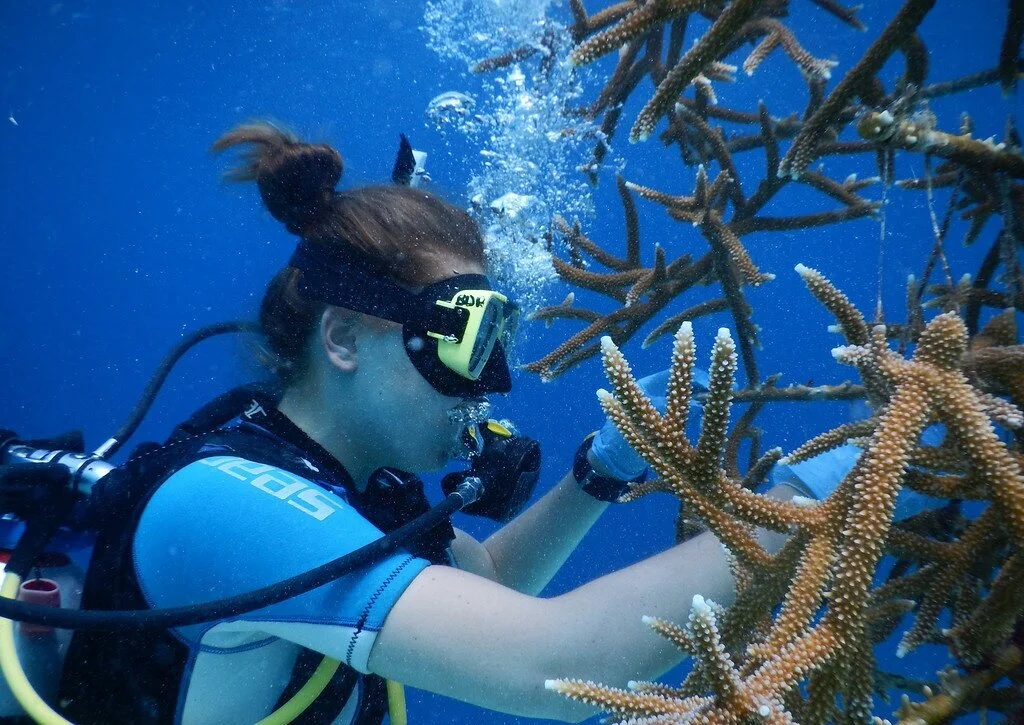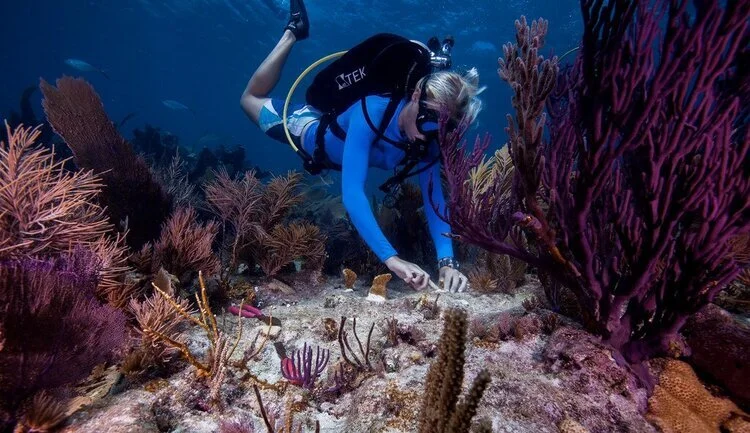DIVING FOR A DIFFERENCE: MARINE CONSERVATION EDUCATION
We hate to say it, but it’s nearly now or never for young people to let their passion for the oceans and its creatures burn brightly. No doubt, the numbers below are bleak; however, diving past darkness, we’ve discovered belief. We believe young people interested in marine conservation today, will be the scientists in the field and under the sea turning the tide tomorrow. Fins down, generations of underwater wildlife are counting on them.
Young People Missing the Boat on Marine Conservation Education:
Studies show marine life has already seen a 50% decline in the past 40 years, and it’s becoming clearer that without serious protection and conservation efforts, more plants and animals are at-risk for extinction.
With this is mind, let’s take a moment to recall research showing that early childhood experiences outdoors (regardless of race, ethnicity, or status) influence lifelong attitudes for environmental stewardship and values.
Thankfully, SCUBA divers can help. From assisting guide ships away from migration paths to minimizing invasive species, divers play a paramount role in the marine conservation equation.
So how can we get young people interested in SCUBA diving today?
Certified summer environmental service programs are a great starting place. Many men and women have followed their passion for the ocean world and have turned it into successful, impactful, and rewarding careers. Being a professional SCUBA diver may sound as far-fetched as growing up to be an astronaut; however, not only is it an attainable career, it’s a very viable one.
What does it take to prepare for a career as a research diver?
Research divers often require a minimum of a Master’s Degree, but volunteer hours are another large component to the experience required for a successful career. Alessandra Sicilia is a certified professional SCUBA diver and the manager of TGI Diving, where she is a PADI master instructor. For young people considering a career in diving, she says:
“Knowing how to dive is not enough to be successful. You need to have many other trades like a good understanding of logistics, accounting, customer care, and a great understanding of the importance of protecting our environment and its ecosystem.”
Ingredients commonly found in successful professional divers are being well rounded, a critical thinker, and motivated to make a difference by following one’s passion. Check, check, and check, you say? Perfect. Read on.
A Valuable Asset to the Planet
SCUBA divers provide vast research benefits for the planet. Underwater conservation efforts are on the rise, and skilled divers are needed at places like the National Marine Sanctuary Program, National Parks, state agencies, and NGOs. The necessity for more skilled divers will increase as we continue gathering data and working towards oceanic sustainable solutions.
Diving Programs for Teens – It’s never too early to start learning
There are different types of SCUBA diving programs for kids of all ages, but all of the following Road Less Traveled options include PADI SCUBA certifications for maximum safety and proper training. Many also include environmental service work and marine biology education for a holistic, scientific, leadership experience.
Conservation is Key (Florida Keys)
During this 14 day program, SCUBA divers will work on PADI SCUBA certification and volunteer with local conservationists at an underwater coral reef nursery in the beautiful Florida Keys.
Students can learn to free dive or work toward open water certification while learning alongside CNN Hero Ken Nedimyer, who has partnered with the Coral Restoration Foundation to protect and restore this natural treasure. Divers will also learn how to help eradicate invasive Lionfish, visit a sea turtle hospital, and explore the Everglades by sea kayak.


